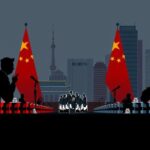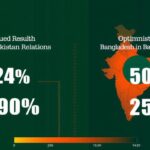Apple Expands iPhone 16 Production to Brazil in Strategic Move
Summary
Apple’s iPhone 16 series has launched globally, with assembly now taking place in Brazil by Foxconn, marking the first time a new Apple model is produced in South America at launch. This move aids in avoiding high import tariffs, boosts sales, and reduces supply chain risks. The Brazilian facility is currently assembling only the basic iPhone 16 model, while the Pro versions are being manufactured in India for the first time.
Apple Inc. has officially launched the iPhone 16 series globally today, coinciding with an expansion in its production capabilities. For the first time, assembly of the iPhone 16 is taking place in Brazil, conducted by Foxconn at its facility in Jundiaí, São Paulo. This strategic move allows Apple to mitigate Brazil’s high import tariffs, increase sales opportunities, and alleviate potential supply chain disruptions that may arise from geopolitical tensions. Although Foxconn has assembled older models in Brazil previously, this marks a significant milestone as it integrates a new model into its South American production immediately upon launch. Currently, the Brazilian plant specializes in assembling the standard iPhone 16 model, while the higher-end Pro versions are excluded from this production line. This decision reflects the preferences of South American consumers, who tend to gravitate towards entry-level devices due to their cost concerns. Furthermore, Apple continues to diversify its supply chain, minimizing its reliance on Chinese manufacturing. Notably, the iPhone 16 Pro and iPhone 16 Pro Max models are also being manufactured in India for the first time, showcasing Apple’s expanding manufacturing footprint in the country.
The announcement regarding the assembly of the iPhone 16 in Brazil signifies Apple’s continuous efforts to optimize its manufacturing and supply chain logistics amidst global trade uncertainties and fluctuating tariffs. Historically, Apple has faced challenges in South America regarding high import duties, prompting the company to explore local assembly options. Moreover, the geopolitical landscape has necessitated a reevaluation of supply chain dependencies, particularly concerning reliance on Chinese manufacturing. By branching out into Brazil, Apple can respond more adeptly to regional market demands while simultaneously reducing potential risks associated with a concentrated production strategy.
In conclusion, Apple’s expansion of the iPhone 16 assembly to Brazil represents a pivotal step in its manufacturing strategy, aimed at addressing high import tariffs and enhancing market accessibility in South America. This development not only allows for more competitive pricing but also indicates a broader trend of diversifying supply chains to mitigate risks associated with geopolitical challenges. While the Brazilian facility currently focuses exclusively on the base model, Apple’s simultaneous production initiatives in India for the iPhone 16 Pro series highlight its commitment to adapting to global market dynamics and consumer preferences.
Original Source: www.trendforce.com








Post Comment